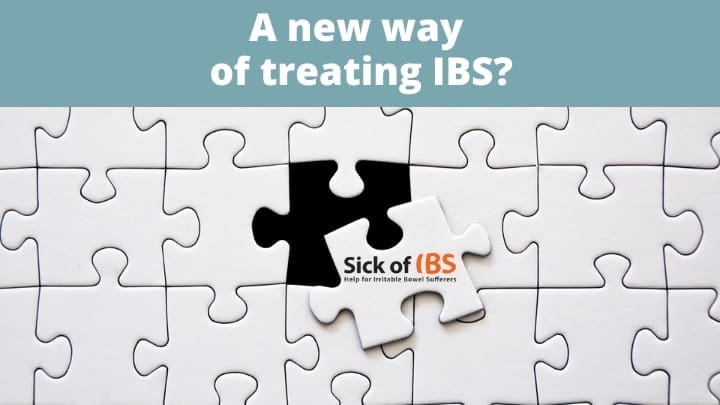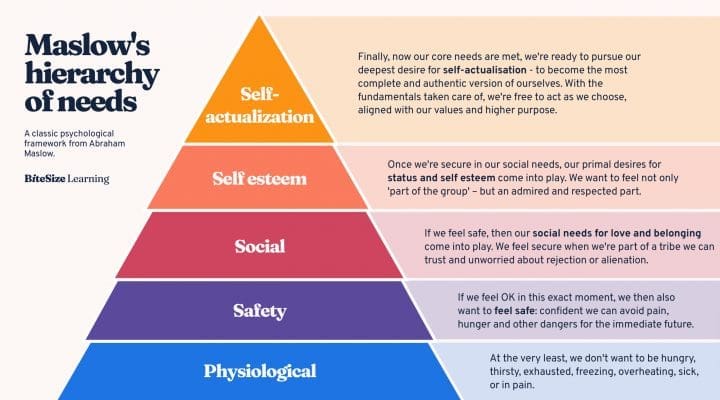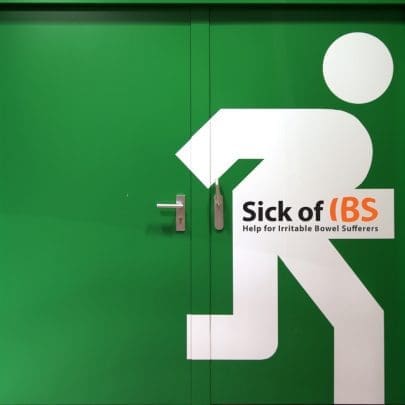
I know, you have followed all the advice on how to treat IBS. And you feel like you are running round in circles not getting anywhere. Maybe we need a new way to treat IBS…
What if IBS works differently?
I am not a doctor. However my own journey out of long-term IBS has offered me a new perspective of IBS, which I’m sharing with you here.
Yes, IBS is characterised by the IBS symptoms you have been told about. And yes, it is often linked to food intolerance, difficult digestion and the quality of your gut bacteria. But these are the after-effects. And you need to “treat” (or address) the root causes of IBS, rather than the effects.
In my world, IBS seems to be caused by a mix of two essential phenomena:
Emotional overload and specific, habitual defense mechanisms.
Understand these and you will likely understand your IBS better – and realise why changing your diet is not cutting it.
IBS and emotional overload

Emotional overload can happen in an instant at any age when we are faced with something really scary.
Scary in that it shakes us to our very core.
This may happen as a once-off event where your fear went off the charts.
Or repeatedly over a period of time.
Children are most exposed to emotional overload as their capacity to mentally analyse a situation develops progressively. They have no way of explaining or creating a mental buffer to experiences they can feel intensly.
An adult who, for example, regularly gets angry with a child may not seem like such a big deal from an adult’s perspective. But that intensity can be terrifying for a child. Especially if it comes from a parent, caretaker or school teacher that the child relies on, or has to spend a lot of time with and can’t escape.
Fear is not the only emotion involved in emotional overload. The same can be said about regular criticism and shaming. A child can take that to mean that they are bad, defective and shameful – and do everything they can to not feel those emotions.
However fear is the emotion we probably feel the most on a deep, visceral level. One that in our mind questions our safety in the world.
Maslow’s heirarchy of needs puts this into perspective.
If you start at the bottom of the pyramid, physiological needs and safety are the basis we rely on to be able to develop feelings of love and belonging, self-esteem, and live our best lives.

IBS symptoms as defense mechanisms
Over time, a child will try to protect itself in any way it can from situations in which it doesn’t feel safe.
It can do this through the mind and behaviours when possible. Or through the body:
These defense mechanisms, when practised over time, can become a regular way of being. And can be reversed.
Here are themes I noticed about long-term IBS symptoms in myself, and in my coaching clients:
Constipation
Holding in emotions so that we don’t “cause trouble”, upset or attract the attention of someone who frightens us. Suppressing our needs to be agreable and to feel safe. The freeze or fawn survival mechanism.
Bloating
Holding in emotions that are building up. Often emotions linked to anger (frustration, resentment) that we can’t, or are afraid to express. An attempt to stay safe.
Diarrhoea
Running away from something or someone that scares us. Diarrhoea makes us move out of a situation. The flight effect. This can also be an attempt to esacpe from an emotion that is rising.

“But I’m an adult now.” I should be able to handle this.
There’s a very good reason you can’t.
Part of our mind is a learning machine. It associates situations with feelings and gives them meaning.
And if an experience is strong enough, or repeated enough, we learn to associate certain situations with the emotions we had as children.
They have been programmed in to the unconscious. And they are running the show.
Your adult mind can rationalise all it wants to (a coping mechanism), but if you felt scared as a child, you will likely feel scared as an adult. If you felt emotionally overwhelmed as a child, you will still carry that overwhelm as an adult. And your body will react without you understanding why.
Those triggers can become long-term IBS triggers that you just can’t understand. Until you finally do. And stop the viscious circle.
2